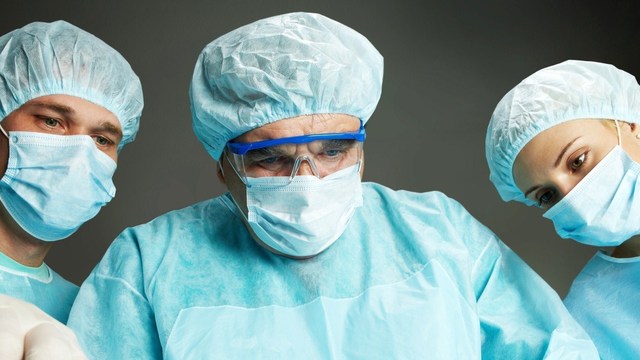When I got notice of this study in my email box the other day, it really hit home for me. I have had uterine cancer now six times. Today is my follow-up cat scan to my last surgery. My last two surgeries have been March 2009 and April 2010. The re-occurrence from the March surgery happened within eight months of the surgery (it was usually a year or more with the other reoccurrences). So my anxiety and stress level have been high, anticipating this cat scan and the results. I’m glad to see from the information below that more and more attention is being paid to what survivors go through. It’s not just that we’re NED (no evidence of disease) and can easily go on with our life. I can go on with my life physically and with work—but emotionally is an entirely different story. Hopefully, posting information of this study will help others as well!
When sadness becomes serious.
http://mydigimag.rrd.com/article/Side_Note/504654/47727/article.html
CAUSES >
Dealing with major lifestyle changes and financial issues, such as those that accompany a cancer diagnosis, can cause emotional distress that can turn into depression.
Depression also can be a side effect of chemotherapy, hormonal therapy, and drugs that manage symptoms such as nausea and pain. Holland says the two biggest culprits in this category are interferon, used to slow growth in certain tumors, and steroids, given to reduce potential allergic reactions to different cancer treatments.
Cancer-related risk factors for developing depression Include poorly controlled or increased pain, increased physical impairment, and an advanced stage of cancer. Other risk factors include a history of depression, lack of family support, history of alcoholism or drug abuse, and having other medical issues besides cancer.
TREATMENT & MANAGEMENT >
The Institute of Medicine recommended in 2007 that all new and recurring cancer patients should be evaluated during their appointments for their level of distress.
The screening process lets patients rate their level of stress on a scale from one to 10. If the patient‘s level is four or higher, a discussion about potential causes should take place. The nurse or oncologist should then refer the patient to the proper psychosocial resource.
“Quality care today can’t be done without this dimension being included,” Holland says.
Patients with mild to moderate depression are largely treated with counseling, she says. This is done through cognitive-behavioral therapy, support groups, and religious and spiritual resources.
Research studies have shown complementary therapies, such as yoga and regular exercise, also benefit patients with mild to moderate depression.
Most patients do not require antidepressant medication unless they suffer from major symptoms or have difficulty sleeping or eating, Holland says.
If your doctor prescribes an antidepressant, he or she needs to know all medications and supplements you are taking to avoid possible drug interactions.
For example, St. John’s wort can cause pronounced side effects or diminished activity of Other drugs by interfering with their metabolism or activity.
The American Psychosocial Oncology Society provides a helpline at 1-866-APOS-4-HELP (1-866- 276-7443) that can help patients find a counselor in their local communities who is familiar with cancer issues.
All user-generated information on this site is the opinion of its author only and is not a substitute for medical advice or treatment for any medical conditions. Members and guests are responsible for their own posts and the potential consequences of those posts detailed in our Terms of Service.






Add a Comment1 Comments
Mary, thanks, this is very interesting. It would be nice if society recognized the very real issues people with cancer go through. Unfortunately there is far too much commercialization and idealization of cancer leading to a general public expecting people to be "warriors" and "bravely" put up a positive front. I think it's past time that people without cancer got some sensitivity training and we stopped putting unrealistic expectations on patients which can certainly contribute to depression and sadness.
November 10, 2010 - 6:53pmPat
This Comment